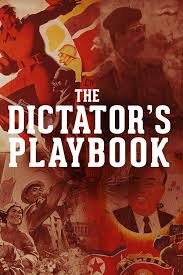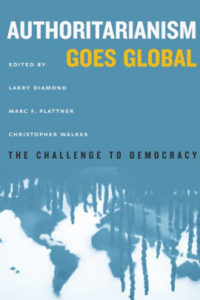
CSIS
Today’s would-be authoritarians aren’t just interested in using brute force to rise to power, notes a scholar of international law, and Executive Director of the University of Dayton Human Rights Center. They are smarter, more resilient and can adjust their methods to take account of new developments, she writes for the Conversation, offering ten of the newest tactics in the autocrats’ playbook:
1. Extend executive power: The mainstay of today’s authoritarianism is strengthening your power while simultaneously weakening government institutions, such as parliaments and judiciaries, that provide checks and balances. The key is to use legal means that ultimately give democratic legitimacy to the power grab….{such as} regressive constitutional reforms to expand presidential power, like in Turkey.
2. Repress dissent and citizen efforts to hold government accountable: Restrictions on funding and other bureaucratic limitations silence the ability of the people to hold accountable those in power. More than 50 countries have passed laws that stifle citizen groups. Democracies have also jumped on this bandwagon. Limitations on permits for public protest, detention of protesters and excessive use of force to break up demonstrations are frequently used tools.
 3. Capture elite support and, when needed, demonize them too: Economic growth and prosperity are critical to retaining elite or oligarchical support for autocratic leaders. Whether through state-owned businesses, media conglomerates or more sophisticated connections between governments and free-market corporations, money and politics, translated into government favors for the rich, can be a toxic mix for democracy….
3. Capture elite support and, when needed, demonize them too: Economic growth and prosperity are critical to retaining elite or oligarchical support for autocratic leaders. Whether through state-owned businesses, media conglomerates or more sophisticated connections between governments and free-market corporations, money and politics, translated into government favors for the rich, can be a toxic mix for democracy….
4. Appeal to populism and nationalism: Most would-be autocratic leaders today exploit existing tensions within complex societies in order to solidify their support. In many places, fears of migrants and refugees have fueled resurgent nationalism, driving policies like U.K.‘s Brexit. In India, religiously based nationalism has maintained the power of Prime Minister Narendra Modi….
5. Control information at home, misinform abroad: While propaganda and state-owned media is not new, control of modern technology and information has become a key battleground. ….Russia is at the vanguard of state media control at home while generating misinformation abroad. Many smaller countries have used internet blackouts to block organizing and communicating by social movements.
6. Cripple the opposition: Damaging the opposition parties, while not completely destroying them, is now essential. Infiltrating parties, co-opting members and using pure scare tactics are some possible actions in the autocrat’s playbook. This serves the purpose of retaining a target for pseudo-political competition while also stymieing the potential for new, more democratic forces to gain traction.
 7. Covert election manipulation: Mostly gone are the days of vote-rigging and vote-buying as a path to power. Would-be autocrats have found cleverer ways to tilt the playing field in their favor. These new tactics include hampering media access, gerrymandering, changing election and voter eligibility rules and placing allies on electoral commissions.
7. Covert election manipulation: Mostly gone are the days of vote-rigging and vote-buying as a path to power. Would-be autocrats have found cleverer ways to tilt the playing field in their favor. These new tactics include hampering media access, gerrymandering, changing election and voter eligibility rules and placing allies on electoral commissions.
8. Play the emergency card: Some autocratic leaders continue to use traditional strong-arm tactics, like declaring states of emergency, to enable further repression. Since 2001, using the threat of terrorism or organized crime has played well for furthering autocratic rule. President Rodrigo Duterte’s drug war, which has resulted in thousands dead in the Philippines ….
 9. Extend your model and influence: Today’s autocratic rulers are not keeping to themselves. Using the international stage and their growing economic prowess, countries like China are spreading their influence through funding initiatives such as the Belt and Road to build infrastructure across Asia to Europe. They’re hiring professional consultants to advise and lobby foreign capitals for policies that reinforce their power.
9. Extend your model and influence: Today’s autocratic rulers are not keeping to themselves. Using the international stage and their growing economic prowess, countries like China are spreading their influence through funding initiatives such as the Belt and Road to build infrastructure across Asia to Europe. They’re hiring professional consultants to advise and lobby foreign capitals for policies that reinforce their power.
10. Learn and share: Characterized as “autocratic learning” by scholars, national authorities from Russia, China, Iran, Venezuela, Belarus, Syria and other places are developing and exchanging models for containing threats of social movements and the so-called “color revolutions.”….RTWT







